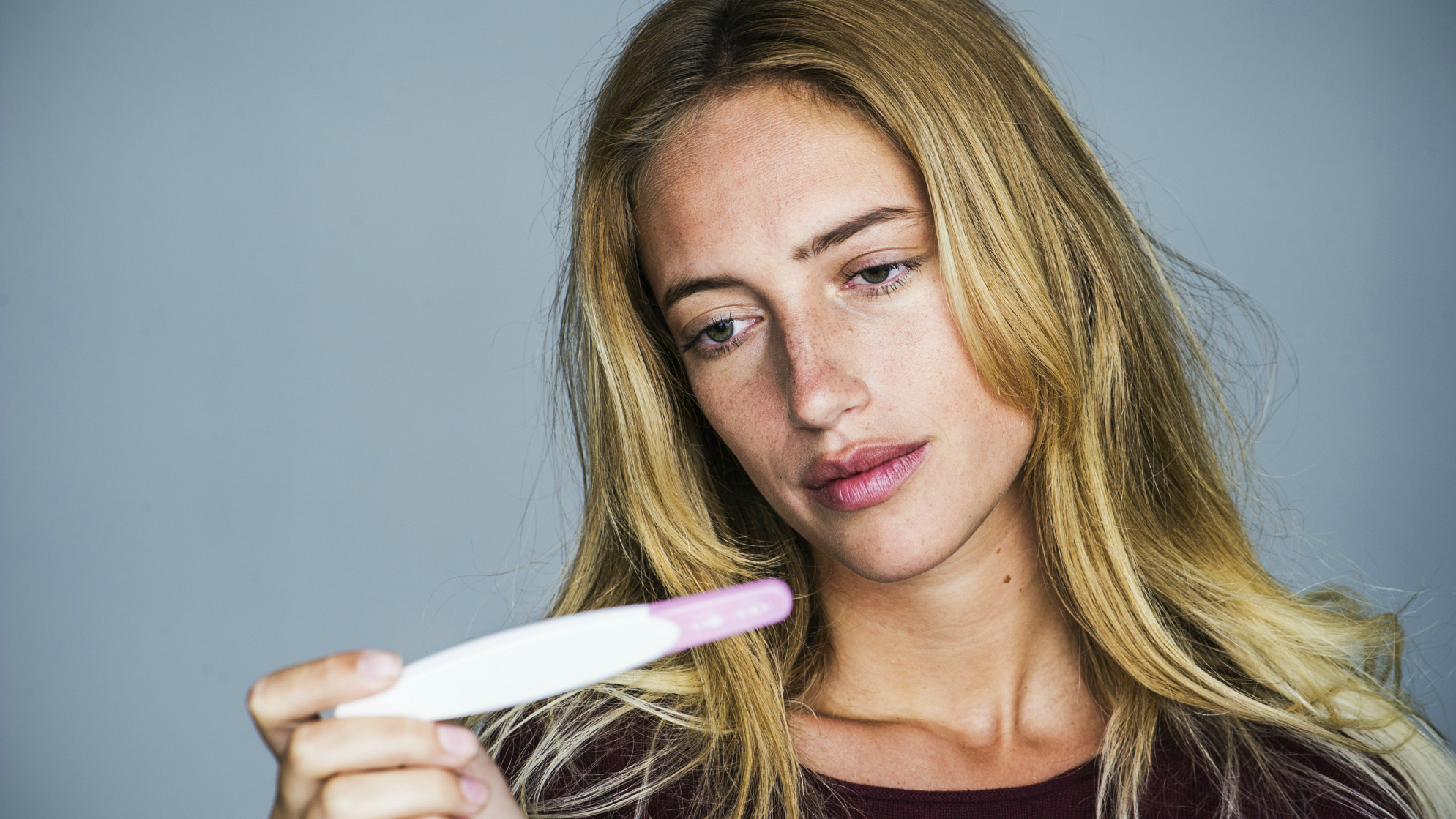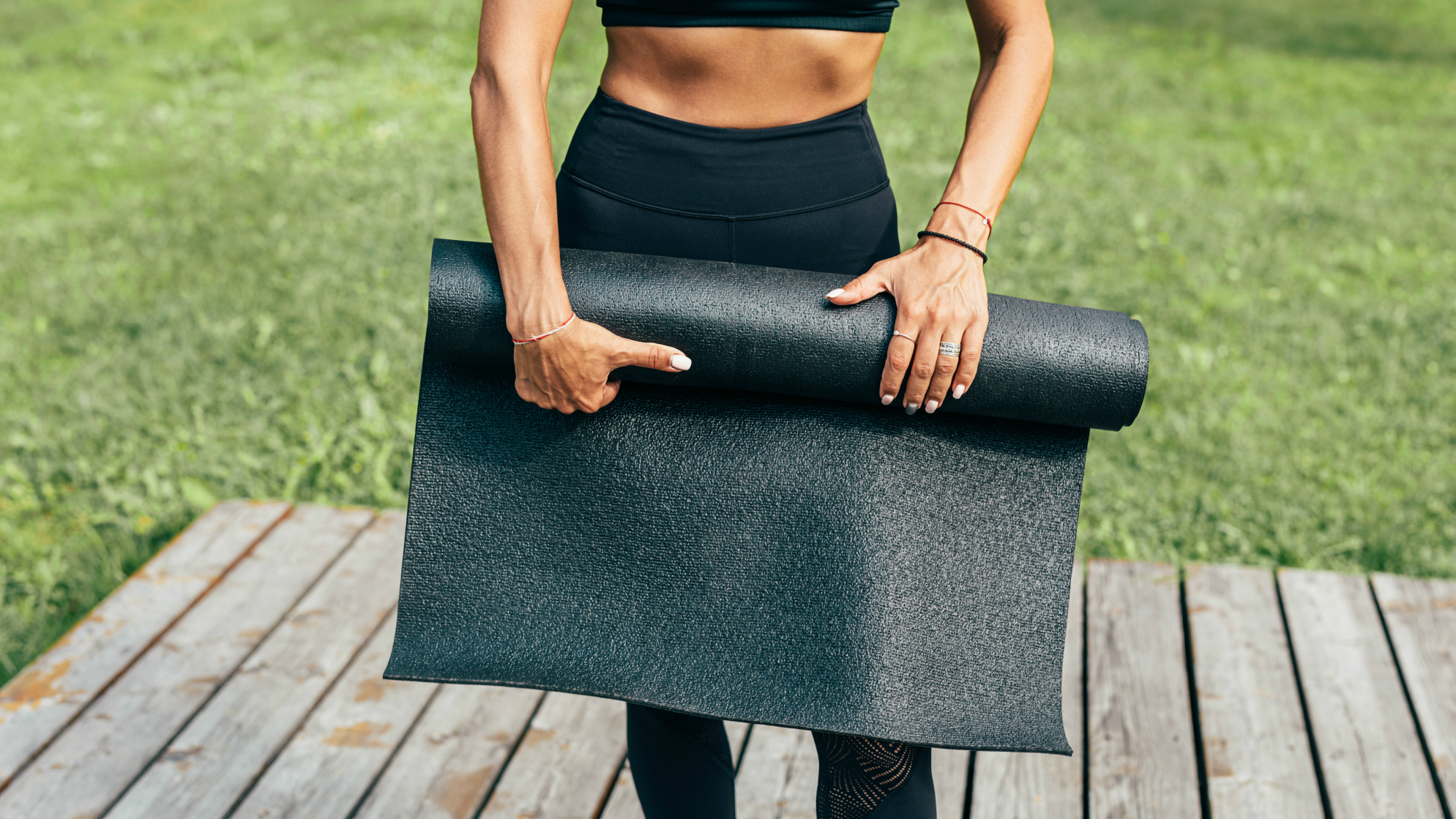Are these the 5 reasons why you're not getting pregnant?
Things to avoid if you're trying to get pregnant

Celebrity news, beauty, fashion advice, and fascinating features, delivered straight to your inbox!
You are now subscribed
Your newsletter sign-up was successful
Things to avoid if you're trying to get pregnant
Words Jessica Salter
You spend most of your twenties trying not to get pregnant, then when you actually want a baby, you realise it is harder than you thought. For every story you hear about someone giving birth without knowing they were pregnant, there are five more women desperately trying to conceive.
‘Producing another human being is complicated,’ explains reproductive biologist Grace Dugdale. ‘Sometimes it seems like a miracle that anyone actually gets pregnant.’ The odds are stacked against us. There are only six days a month when a woman is fertile enought o get pregnant: ovulation day (when the egg is released from the ovary) and the five days before that. It is down to the lifespan of the sperm (five days) and the egg (24 hours). The window is surprisingly small and one in seven couples in the UK suffer from fertility problems, but the reassuring news is that most couples – 84 per cent – do get pregnant within a year. ‘There’s so much that women (and their partners) can do to increase their chances of conceiving naturally,’ says Dugdale. ‘It’s just a case of playing the detective to see what works.’
5 lifestyle changes to help you get pregnant
1. Avoid binge sex
A male friend recently recalled waking up one morning with a huge hangover while his partner came out of the bathroom waving her ovulation stick, saying, ‘Honey, I’m ovulating, let’s do it.’ Literally, nothing sexier. But while waiting until ovulation (around 14 days before your next period) seems logical, it could be scuppering your chances of getting pregnant – you need to be at it consistently. ‘Many couples who are trying for a baby only have sex around the time of ovulation, but this is bad for sperm, as it’s stored in the testes and “goes off” over time,’ says Professor Adam Balen, chair of the British Fertility Society. ‘So it’s best for a man to ejaculate every two to three days and not have long gaps.’
Dugdale recommends having ‘good-quality’ sex, as she calls it, every two days. ‘The more aroused the woman is, the better. It’s important to have cervical mucus present to provide channels for sperm to swim in and protect from an otherwise hostile vaginal environment.’ Want to boost your chances even further? Encourage your man to watch porn. No, really. A new study has found that men produce stronger swimmers after watching heterosexual porn. Try feminist film-maker Erika Lust’s site for movies that you’ll enjoy, too.
2. Don't over-exercise
Yes, being fit is important for your fertility, but if you regularly workout to the point of exhaustion, it’s time to slow down. ‘I had a client who came to me and wanted to get pregnant, but was struggling,’ says pre- and postnatal personal trainer Charlie Launder. ‘She was running to and from work every day, followed by hot yoga and the gym. The first thing I did was reduce her exercise.’ The science agrees. A study published by Norwegian University of Science and Technology (NTNU) found that our bodies might not have enough energy to fuel both a tough workout and to get pregnant. Among those who trained to exhaustion, 24 per cent had trouble conceiving. ‘That’s not to say that you should give up training; you just need to find the balance between being inactive and overtraining, and not resort to either extreme,’ says Launder. While you’re on your exercise mat, check what it’s made of. A study published over the summer revealed that the chemical often used in yoga mats to make them flame retardant can harm fertility. So go eco instead with a mat such as Sundried’s Jute Yoga Mat (£50).
Celebrity news, beauty, fashion advice, and fascinating features, delivered straight to your inbox!

3. Stop carb-loading
You may crave stodge when you are pregnant, but this isn’t a marathon, so don’t start carb-loading now. A report published in February found that a low-carb diet – where carbohydrates formed less than 45 per cent of the total number of calories consumed – improved fertility by balancing hormones, leading to resumed ovulation. Dugdale recommends having just one carb-heavy meal a day, and eating a big breakfast, medium-sized lunch and small dinner to increase fertility by regulating insulin levels.
Experts are torn on dietary villains, such as coffee, alcohol and red meat for women trying to get pregnant. Despite a study quoted in The Lancet, which suggested women who drank a daily cup of coffee were half as likely to conceive, nine subsequent studies failed to back it up. Heavy boozing is inadvisable and the NHS say to avoid alcohol, but there’s limited evidence that light drinking (less than seven units a week) harms fertility. The meat industry cites selenium in red meat as beneficial to fertility, but nutritionist Pixie Turner suggests choosing plant protein sources, such as quinoa and lentils, which lower the risk of ovulatory disorder infertility.
She also advises opting for full-fat dairy, and eating eggs for protein, essential vitamins and, surprisingly, cholesterol (levels need to be spot on – too low is as bad as too high). Go for Red Lion-stamped eggs, which are now considered safe to eat runny even during pregnancy. For optimum fertility health, Turner recommends having a Mediterranean-style diet with moderate full-fat dairy intake.
4. Brush your teeth carefully
You might be brushing your teeth with extra vigour after reading that poor oral hygiene is as bad for fertility as obesity, according to a recent discovery by Australian scientists. But a report out earlier this year from Harvard T. H. Chan School of Public Health in the US revealed that the ingredients in your toothpaste could harm fertility. Researchers discovered that Triclosan, an antibacterial agent found in toothpaste and soap, reduced the ovarian reserve, and that younger women – and lean women – were particularly sensitive to it. The good news, according to the school’s research scientist Lidia Mínguez-Alarcón, is that the damage is not permanent.
‘The chemical is excreted in less than 24 hours, so stopping the exposure should prevent the negative effect,’ she says. Keep brushing, but switch to organic toothpaste brands, such as Taylor’s 32.
5. And here's what your man should be doing
I spent one particularly joyless wedding with a friend, both of us sober – me because I was happily pregnant; my friend because she was unhappily not. It was made particularly trying by the number of questions about she faced about why she wasn’t drinking. The explanation she had to offer – that she wasn’t pregnant, but she was trying – didn’t help her mood. Nor did the fact that while she was sacrificing a fun night out, her husband smoked, drank thrughout the wedding, and then had a greasy fry-up the next morning. Nothing wrong with that? Recent research has shown that to successfully conceive, it is not just women who need to watch what they eat. ‘Sperm is very responsive to lifestyle changes,’ says Dugdale. ‘It takes about two to three months to mature so, in that time, it can either be damaged or nurtured.’
A British Medical Journal study found that just five drinks a week affects the quality of sperm, while separate studies discovered that vegetarian men and those with a soya-rich diet also had lower sperm counts. As with women, the Mediterranean diet was found to boost male fertility. And get him to pop a daily vitamin D tablet – it’s particularly important for boosting those swimmers, according to the Reviews in Endocrine and Metabolic Disorders journal earlier this year.
Sure, it can be overwhelming, but the best advice Dugdale has to offer? ‘The key message is balance: do all you can to help yourself but, overall, try to relax and not become obsessed.’
How to get pregnant: 5 genius fertility aids
1. The app
The app Natural Cycles, which is backed up by clinical trials, uses a temperature reading every morning to measure your hormone levels and analyse your cycle. Typically, it’s used as a contraceptive device, but there is also a ‘plan a pregnancy’ mode. No more peeing on sticks. £40 a year, including a two decimal basal thermometer.
2. The massage
Ex-doula and qualified sacral massage therapist Clare Blake has developed a treatment that combines traditional massage, Tai Chi and Rebozo (a traditional shamanic binding practice), along with visualisation techniques and meditation to help women with fertility problems. £170.
3. The relaxation technique
Make time to relax. Research has found that yoga for 45 minutes a week could help women increase their chances of getting pregnant. Try Calm by Candlelight at Virgin Active, a 60-minute yoga session to restore your Zen.
4. The wonder lube
While lube might get things going, do check the label first – many brands actually contain spermicide, like Durex, but even water-based lubes, such as KY Jelly, can affect sperm as they absorb the water. Instead, opt for a brand designed for intended pregnancy, such as Conceive Plus, which contains magnesium and calcium ions to help the little guys on their way. £7.99.
5. The vital vitamins
Don’t waste your money on fancy multivitamins marketed at those hoping to conceive because, according to the Drug And Therapeutics Bulletin, most women only need to take folic acid and vitamin D. Professor Geeta Nargund, medical director of CREATE Fertility, recommends 400 micrograms of folic acid a day, which you can pick up in a high-street health shop.
The leading destination for fashion, beauty, shopping and finger-on-the-pulse views on the latest issues. Marie Claire's travel content helps you delight in discovering new destinations around the globe, offering a unique – and sometimes unchartered – travel experience. From new hotel openings to the destinations tipped to take over our travel calendars, this iconic name has it covered.